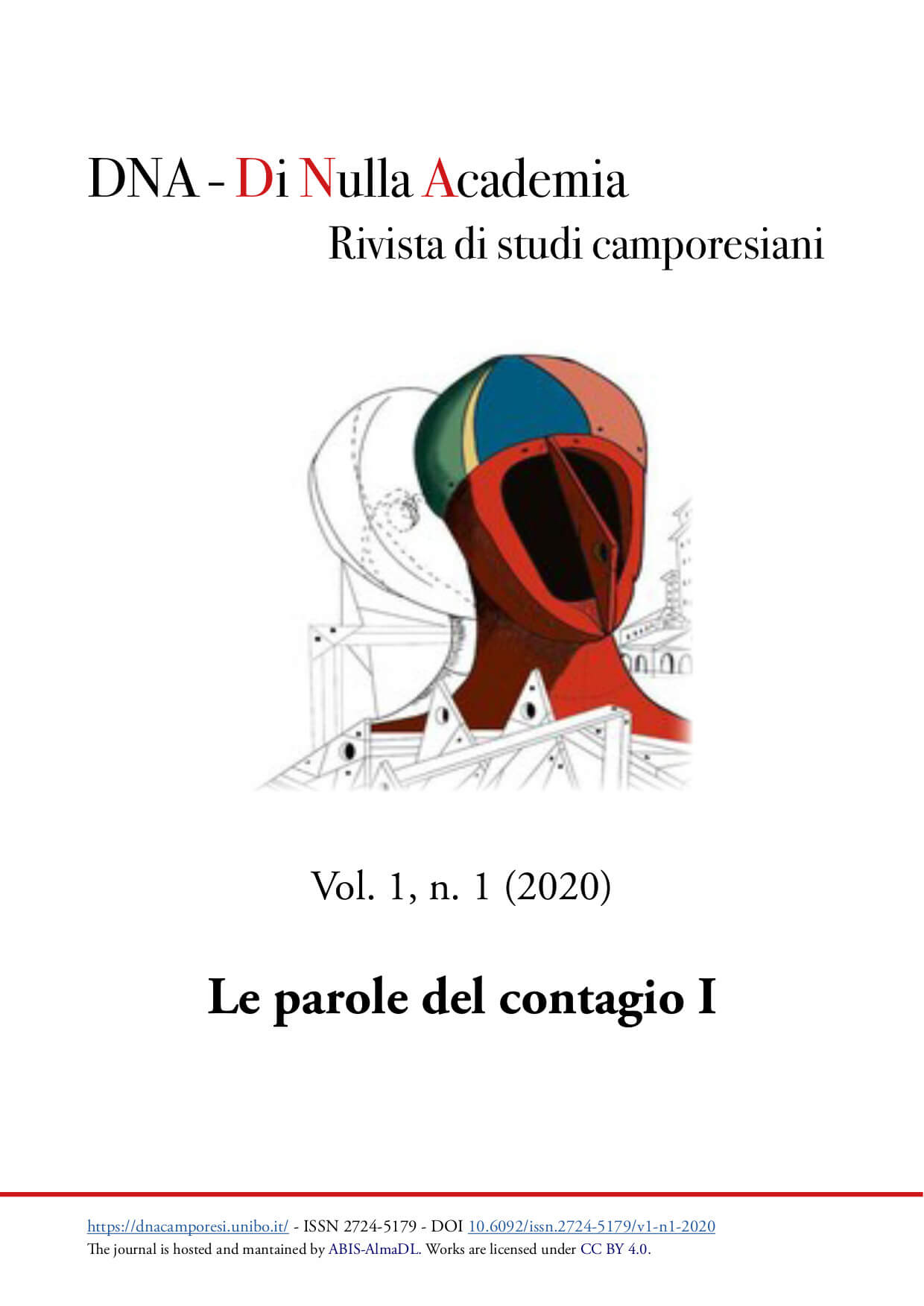La retorica del contagio da Boccaccio al Coronavirus: i casi della peste del ’300, del ’500 e del ’600 tra fonti storiche e letteratura
DOI:
https://doi.org/10.6092/issn.2724-5179/12079Keywords:
Covid-19, Triage, Argumentation Theory, Clinical Ethics, Medical HumanitiesAbstract
The history of the rhetoric of contagion reveals the existence of a shared imagination in which it is formed as a negotiation between fear and knowledge, between knowledge and hope, between truths that society can tolerate and how this truth is communicated. Are there rational methods to prefer happiness to health, health at work, safety of the social body to the individual one? Among the historical sources, literature and news, the ethical problem of the agreement of values emerges which must help to find with the community in order to link action to the dimension of persuasion. In argumentation theory, the contagion argument is used when, from an initial phenomenon considered harmful, it is warned against its transmission. How to stop the fear of contagion? In Boccaccio, the plague of 1348, like the breakdown of the social pact between the one and the whole, is at the basis of Pampinea's proposal of “honestly going”: not safety but the possibility of finding a mental ecology.
Lucrezia Borgia's letters on the initiatives undertaken during the Modena plague of 1505 show that quarantine is justified in common opinion by the pragmatic argument: the persuasive effect coincides with the decline in the epidemic curve. Manzoni, writing about the plague of the 17th century, moves from the pars destruens of the guilty authority “to indulge in credulity” towards that construction in praise of the service rendered in the hospital, a new form of sociality, “from men to men”.
Downloads
Published
How to Cite
Issue
Section
License
Copyright (c) 2020 Elvira Passaro

This work is licensed under a Creative Commons Attribution 4.0 International License.





